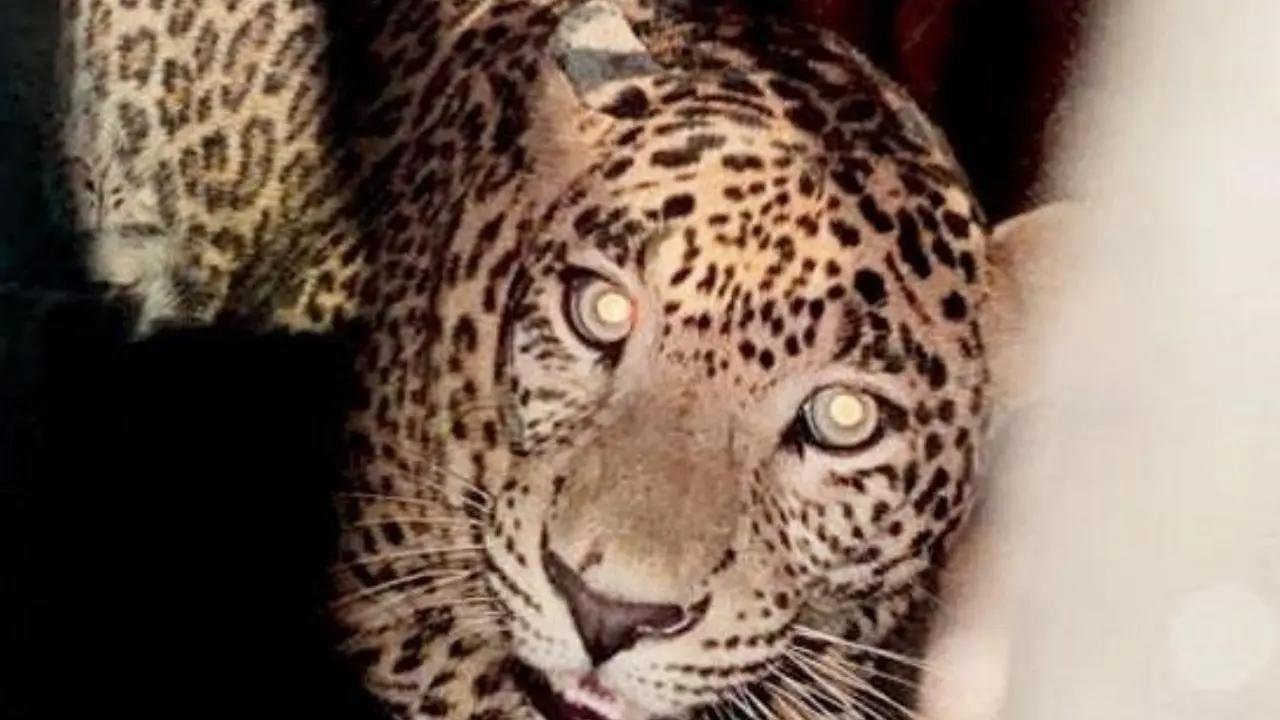With leopard sightings and attacks on the rise in Junnar, a special awareness campaign on human-leopard conflict was jointly organised by the Vanyajeev Nisarg Sanvardhan Rescue Team, Junnar, and the Word for Nature Foundation.
Held during the ongoing sugarcane harvesting season — when leopards often seek shelter in dense fields — the drive aimed to educate sugarcane workers and locals on identifying leopard activity, staying alert, and working safely in high-risk areas.
Wildlife experts Aakash Mali (Founder), Deepak Mali (Vice-President), Hemant Ghadge, and Word for Nature President Shubham Pandey guided workers through practical demonstrations and shared their field experiences. Team members Anup Shelar, Shubham Jadhav, Chirag Soni, Kalyani Zharote, Pranit Aadhav, and Kiran Pujari also participated actively.
Speaking to mid-day, Shubham Pandey said, “This is not the first time we have held awareness sessions, but the situation this year is far more alarming. We are receiving distress calls every day from Junnar villages — earlier it was not so frequent. Fear has spread across the region; some families are planning to leave their homes, while young men are looking for work elsewhere instead of harvesting sugarcane.”
He added, “We have been convincing them to stay calm and not abandon their villages. The trend of leopard behaviour has also changed — earlier, attacks used to occur only at night, but now leopards are seen even during the day. They no longer prefer dogs as prey, as dogs fight or flee. Humans, especially children and the elderly, have become easier targets. The most vulnerable are sugarcane cutters who work deep inside the fields.”
Wildlife rescuers Aakash and Deepak Mali interacted closely with the workers, explaining how to read signs such as pugmarks, claw marks, or leopard calls and how to respond safely if they encounter a wild animal. They stressed that panic, shouting, or running can trigger an attack, while calm and alert behaviour often prevents it.
The campaign spread the message of “Human-leopard Coexistence” — urging people to see wildlife as part of the natural balance rather than a threat. Villagers participated enthusiastically and demanded more such sessions across Junnar and Shirur talukas.
Meanwhile, the Forest Department has stepped up safety initiatives. Since October 2024, the Junnar Forest Division has distributed over 3,300 spiked neck bands to sugarcane workers. These light protective collars are designed to prevent fatal injuries during leopard attacks, which usually target the neck.
Assistant Conservator of Forests Smita Rajhans said, “Most fatal cases occur when leopards grab the neck. The spiked bands have saved several lives and are now an important part of our safety strategy. People’s safety remains our top priority.”
The campaign gained new urgency after the tragic death of five-year-old Rohan Bombe in Pimparkhed village on 2 November. His killing by a leopard triggered widespread protests and demands for stronger preventive measures.
In response, the Forest Department has intensified night patrols, installed additional camera traps, and expanded awareness drives to ensure that safety and coexistence go hand in hand in Maharashtra’s leopard country.

